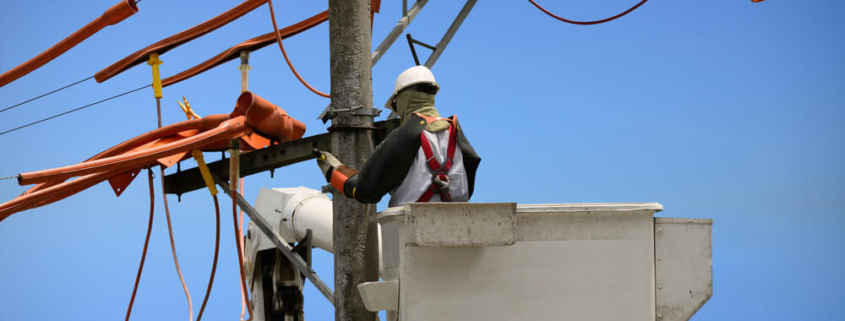What is the Death Rate for Power Linemen?
Being a power lineman is listed as one of the top 10 most dangerous jobs in America. Doing electrical work in high places carries inherent risks that those in other occupations do not face, but the fatal injury rate among power linemen/utility workers is still much higher than it should be.
There are approximately 21 lineman deaths per 100,000 workers. This puts electrical power line installers and repairers at #9 on the top 10 workplace fatality rate list, right behind farmers, ranchers, and other agricultural workers.
Utility companies are giant entities with no competition in most areas of the country. Unfortunately, this means that these organizations are far too concerned about their bottom line at the expense of the safety of the workers they employ.
If you or someone close to you was injured or killed working as a power lineman, it is very important to speak with an experienced linemen injuries and death attorney, so you fully understand your legal rights and options. Utility companies have vast resources, and they can afford to retain armies of lawyers whose job is to mitigate their losses from incidents such as lineman deaths. This is why you need a strong advocate in your corner with the proven ability to recover maximum compensation – even in highly complex cases like these.
Why is Being a Power Lineman so Dangerous?
Here are just a few ways these companies cut corners to try to save a few dollars:
Minimized Staff
The root cause of most of the problems that lead to power linemen deaths is failure to hire an adequate number of utility workers to perform the work safely. Companies tend to do this so they can keep their benefits costs to a minimum. They are willing to pay overtime to workers when needed, because they still believe they can save money this way.
What many companies fail to consider is that staffing shortages lead to numerous other costly issues. For example, when there are not enough workers, it puts undue stress on those who are working. This can often mean 60, 70, even 80 hour or more work weeks. With overburdened workloads comes the tendency to work when you are tired and not as focused and as you should be. This can lead to critical mistakes on the job, some of which can be deadly.
Inadequate Training
Another common byproduct of being short-staffed is not taking the time to properly train new workers that are hired. It literally takes years to learn everything there is to know about being a power lineman, and much of this knowledge can only be acquired by being out there on the job. But companies need to have more comprehensive training programs that provide a strong foundation for linemen/utility workers from which to build. In far too many instances, workers are thrown out there without the proper training to do the job safely and effectively.
Lack of Adequate Supervision
Staffing problems can also show up at the managerial level. Without enough employees to properly supervise utility workers, things are far less organized than they should be, and the required safety protocols are not always followed.
Not Using Proper Safety Gear
Utilities are a highly regulated industry with numerous governing laws and regulations, many of which spell out the tools and safety equipment workers are required to use. For example, utility companies are supposed to ensure that power line workers wear burn resistant clothing and the required helmets, gloves, and shoes to help perform the job safely.
Call Bailey, Javins, and Carter L.C. for Help with Power Lineman Injury or Death Claims
If you or a loved one was injured or killed working as a power lineman, there are several potential avenues from which to recover compensation. These may include a workers’ compensation claim, a product liability claim, a personal injury lawsuit against a third party, or in some cases (depending on the state the incident occurred in), a lawsuit against the utility company.
At Bailey, Javins, and Carter L.C., we can meet with you to thoroughly assess your case, advise you of your legal rights, and sort through all of the options you may have. It is also important to note that we accept all personal injury cases on a contingency fee basis, so you never have to pay any upfront attorney fees. You only pay if we successfully recover compensation on your behalf.
Call our office today at (800) 497-0234 or (800) 296-6979 or message us online to schedule a free consultation with one of our attorneys.




